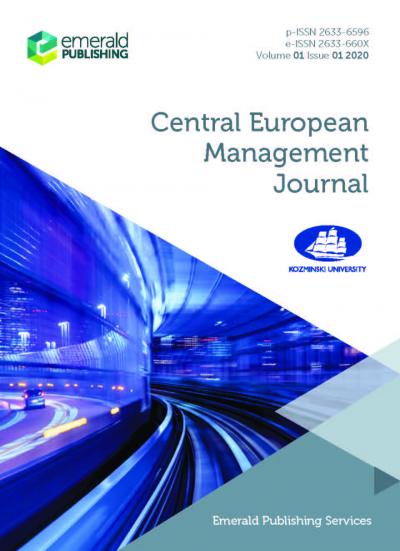Dignity in the Workplace. The Perspective of Humanistic Management
Michał Zawadzki
Jagiellonian University
2018 26 (1) Central European Management Journal
DOI 10.7206/jmba.ce.2450-7814.224








